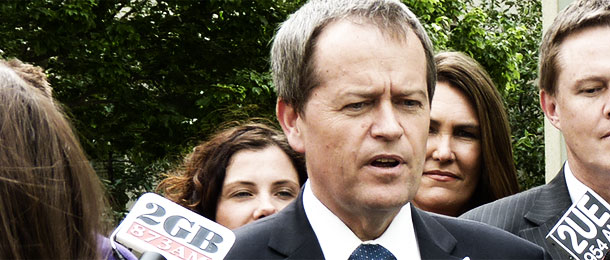The federal opposition’s proposal to abolish cash refunds for excess imputation credits often claimed by super funds will not only affect its intended target of SMSFs, but will hit all 12 million superannuants in Australia, the Self-managed Independent Superannuation Funds Association (SISFA) has warned.
Under the proposed policy, dividend imputation credits would only be used to offset existing tax liabilities and no refund from the ATO would occur if the value of the imputation credits surpassed the tax liability at hand.
Opposition leader Bill Shorten declared 200,000 of the 600,000 SMSFs in the country were the policy’s main target and it will not affect 92 per cent of the 12.8 million Australians who lodge tax returns.
Axing the dividend refund would create a budget saving of $11.4 billion over the final two years of the current forward estimates and $59 billion over the medium term, according to Labor.
Shorten claimed the change only affects a very small number of shareholders who currently have no tax liability and use their imputation credits to receive a cash refund.
“These people will no longer receive a cash refund, but they will not be paying any additional tax,” he said at a summit this morning.
SISFA managing director Michael Lorimer countered the claim that the policy would mainly hit SMSFs.
“It will make all 12 million Australians in super funds worse off,” Lorimer said.
“Labor’s plan is not fair and it’s not transparent.
“It fails the test of fairness because it will benefit taxpayers on higher incomes at the expense of those on lower incomes. Taxpayers with an effective average tax rate of 30 per cent or over will receive the full benefit of franking credits while those on lower incomes will lose out.”
Lorimer said under Labor’s plan, anyone in retirement and living on their superannuation savings will now have every dollar of their income from dividends taxed at a rate of at least 30 per cent.
“In reality, it will hit millions of members of the large industry and retail funds as well – the difference is that members of SMSFs will know how much they are losing because they invest directly in shares, see the dividends and get the franking credits,” he noted.
“Shorten’s plan will have an impact on all members of large funds, but it won’t be visible to them individually because the returns to fund members are netted out and fund members see only the overall return on their account.”
As well as the 1 million Australians who would lose out directly from Labor’s plan, all 12 million superannuants would get lower returns, he said.
“Beyond that general effect, the people who will be particularly hit hard are retirees in pension phase whose savings are invested mainly in large corporations like the big banks, miners and telcos that issue franked dividends,” he noted.
Meanwhile, the SMSF Association strongly opposed the abolition of imputation credit refunds and said it unfairly singled out SMSFs, a sector of the community that has been diligent in saving to be more self-sufficient in retirement.
“SMSFs put strategies in place under the existing rules – rules that have applied to dividends paid on or after 1 July 2000 – only to find that politicians have again proposed to rewrite the rule book,” chief executive John Maroney said.
“Our calculations show it will cut about $5000 of income from the median SMSF retiree earning about $50,000 a year in pension income.
“To be saying these people won’t be paying any more tax is just semantics.”
Maroney warned viewing all SMSFs as “belonging to the mega-rich” was an oversimplification.
“This hit on retirement incomes clearly is not just affecting the very wealthy and can substantially damage the lifestyles of retirees who have prudently saved and are carefully drawing down on their retirement savings,” he said.
Responding to the policy, Treasurer Scott Morrison said if tax has been paid on something, which it has, that benefit should be the same to everyone, whether they sit in an industry fund or an SMSF, and whether they are a pensioner or a person paying 19 per cent income tax or lower.
“At a time when people’s earnings are not where we’d like them to be, why you would penalise a self-funded retiree, a pensioner or anyone, from saying: ‘No, I think it is a sensible thing to invest in something where I can get a 7 per cent to 8 per cent return than put it into a bank and get 2 per cent to 3 per cent,’” Morrison said.
“This is a cruel slug, it is a cynical slug. It is something that the Liberal and National parties would never support.”
He also highlighted that if Labor is elected at the next election, the measure would lead to the tax bill on the economy reaching more than $200 billion over the next 10 years.
“At its peak, it will be more than $50 billion a year more in the tax burden on the Australian economy than would happen under a coalition government,” he said.
“Why? Because we have a speed limit on taxes.
“We impose a speed limit on taxes of 23.9 per cent of the share of the economy, because we know that you should keep the burden of tax on the economy as low as possible.”
Dividend imputation was introduced by then-Labor treasurer Paul Keating in 1987 to avoid double taxation, however, cash refunds began under the Howard government in 2001.




